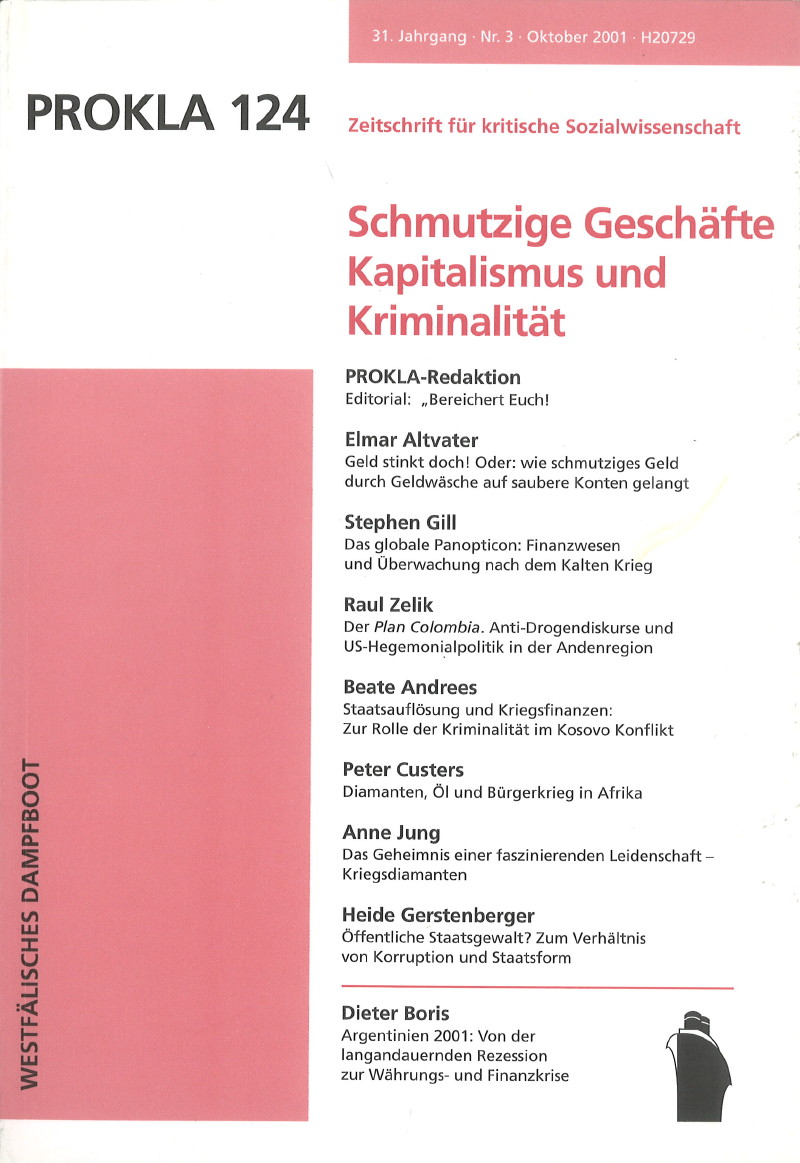Argentinien 2001: Von der langandauernden Rezession zur Währungs- und Finanzkrise
DOI:
https://doi.org/10.32387/prokla.v31i124.739Keywords:
Finanzkrise, Argentinien, RezessionAbstract
After the introduction of the currency board system (1991) and the realization of far reaching “neoliberal reforms” the Argentine economy seemed to have overcome parts of its traditional weakness and achieve high rates of growth. However, the long-lasting recession - in effect since August 1998 - revealed ongoing disproportions and defects of Argentine capitalism and accentuated them even more: the increased dependency on external capital inflows, weak industrial competitiveness caused by institutional, infrastructural and societal deficiencies as well as the - by now contraprodutive - fixation of the Peso to the US-Dollar. A ll of this leads to Argentina being less an less able to overcome the present crisis on her own.






